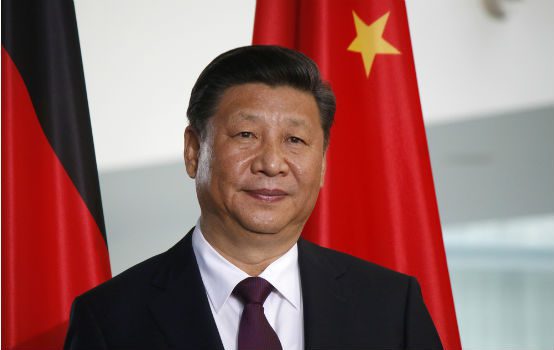The Biggest Loser From a Successful Trump-Kim Summit: China

Sometimes in the realm of life-and-death national security issues it’s fun to stargaze a little, to think about those “what if?” scenarios. And North Korea seems to provide just such an opportunity.
Imagine this: on June 20, 2018, President Donald J. Trump and North Korean dictator Kim Jong-un meet in Ulan Bator, the capitol of Mongolia, for what ends up as a historic summit—a Reykjavik-type event worthy of the comparison, and that indeed surpasses that Cold War summit by leaps and bounds. History is made on that day, as Pyongyang agrees to not only give up its nuclear weapons but long-range missiles as well.
Nothing is certain, of course. America and its allies still insist that 24/7, year-round inspections take place anywhere they want in North Korea—and that the Kim regime is to be given no warning on when and where these inspections happen. This leaves plenty of reason to be skeptical.
But then fast-forward a year to the fall of 2019, and we have every reason to believe that Kim has kept his word. Over 52 nuclear weapons have been fully documented and are in various stages of decommissioning. Pyongyang has also given up seven ICBMs and 1,200 additional shorter-range missiles. While the price was steep—$100 billion in economic aid spread out over 10 years jointly paid for by America, South Korea, and Japan—Kim has begun the process of reorienting his economy towards the West. This came after he tried to make a similar deal with China just before the inter-Korean summit in April 2018, and Beijing declined.
And with Kim now heading to Tokyo for a summit with Prime Minister Abe, there is even talk that full diplomatic recognition could be declared in the coming days, with America, Japan, and South Korea all agreeing to recognize North Korea with an exchange of embassies and ambassadors.
Could such a deal happen? Most likely no. We must remember that North Korea has broken almost every international agreement it has ever signed—and Kim’s demands for giving up his nuclear arsenal might be so steep and fraught with such risk that President Trump may decide to walk away. And considering that North Korea has likely starved its own people for decades to build atomic arms, and that such weapons were paid for in what amounts to dead North Koreans, Kim might have expectations we can’t even hope to meet.
Nonetheless we should prepare ourselves for success just as much as failure. If America and its allies can ink an agreement that sees North Korea give up its nuclear arsenal in a fully verifiable manner, the balance of power in Asia would be completely transformed. Pyongyang would become a much more manageable threat, and Team Trump would finally be able to combat the biggest problem Washington faces on the world stage today: a rising China that wants to completely overturn the international system in its favor.
In many respects, nothing should scare China more, as America, and specifically the Trump administration, has never been fully capable of taking on the challenges presented by Beijing thanks to Pyongyang and its growing nuclear arsenal. China has taken full advantage of Washington’s wandering eye, putting itself in position to dominate the South China Sea, further subjugate Taiwan, and try to develop a stronger position in the East China Sea. Remove the North Korea crisis from Asia and the Trump administration has the needed bandwidth to contain Beijing’s aspirations.
We should not discount the fact that many Chinese strategic thinkers, potentially even the Chinese government itself, look to North Korea as their very own secret weapon, something they could potentially “let off the leash,” as one retired PLA military official told me years ago, if America decided to really try and restrain China’s goals in East Asia.
For example, I have heard whispers in diplomatic circles around Washington that one of the reasons Trump does not push as hard as he wants on trade issues is because China could retaliate with significant help to North Korea, by, say, not enforcing economic sanctions, which could give Beijing a potentially game-changing advantage.
My own personal experiences suggest this could be true. One Chinese scholar, who has very close and proven contacts with the Xi government, even took this argument a little further. Speaking to me on background, he explained that “[N]orth Korea, at least from senior Chinese officials I speak to, is a truly double-edged sword. On the one hand, we don’t want North Korea to be a rogue regime, causing trouble in the region, but, at the same time, we love that America and its allies are more worried about Pyongyang than our own aspirations.”
He continued: “We get benefits from this that I think a lot of people in Washington forget about. If you are worried about North Korea’s military, or how Beijing can help Pyongyang, you don’t care as much about our larger goals in Asia. We lose that if Pyongyang was to come out of the cold and give up its nukes. I am sure this has to keep the [Chinese] leadership up at night.”
All of this hinges on what happens along the DMZ come Friday and a potential Kim-Trump summit most likely in June. For if Kim really does give up his nuclear weapons, China will be the great loser.
Harry J. Kazianis (@grecianformula) is director of defense studies at the Center for the National Interest and executive editor of its publishing arm, The National Interest. Previously, he led the foreign policy communications efforts of the Heritage Foundation, and served as editor-in-chief of The Diplomat and as a fellow at CSIS:PACNET. The views expressed are his own.
Comments